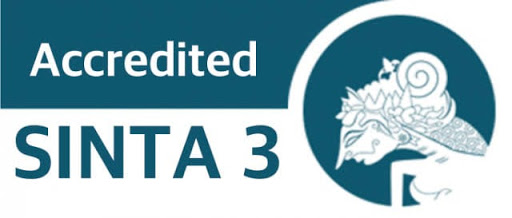Management of Geospatial Data: Preservation Challenges, Multidisciplinary Approaches, and the Role of Library and Information Science
DOI:
https://doi.org/10.30742/tb.v9i1.4292Abstract
Purpose Research. This study systematically reviews research on geospatial data preservation, focusing on challenges, solutions, and the role of library and information science (LIS) in ensuring sustainable access. Research Method. Using the PRISMA framework, data were collected from the Taylor & Francis (www.tandfonline.com) database. Keywords included “Geospatial Data Curationâ€, “Archive Geospatial Dataâ€, and “Geospatial Data Preservationâ€. Ninety-five article topics were found discussing geospatial data preservation. After screening, the duplication selection stage, due to combined keywords during the search, language selection and publication range, 10 peer-reviewed articles (2010–2020) were selected for analysis. Analysis Data. The selected articles were analyzed thematically, focusing on technical, institutional, and socio-technical dimensions. The analysis also examined the application of FAIR principles (Findable, Accessible, Interoperable, Reusable) and emerging trends like AI for data curation and IoT-generated data integration. Results. Findings reveal three main challenges: (1) technical issues like data heterogeneity and technological obsolescence; (2) institutional fragmentation, including inconsistent policies; and (3) the need for LIS professionals to adapt to roles in digital curation and metadata management. Emerging trends highlight the growing importance of interdisciplinary collaboration and innovative technologies. Conclusions. The study concludes that a multidisciplinary approach—integrating technical innovation, institutional collaboration, and LIS expertise—is crucial for effective preservation. Recommendations include developing standardized frameworks, enhancing the role of librarians in digital stewardship, and fostering interdisciplinary research. Future studies should explore real-time data preservation and the ethical implications of long-term access.
Keywords: Geospatial data curation, Geospatial data preservation, Archive Geospatial Data, Library Preservation, Systematic Literature Review
References
Adrian, C., Abdullah, R., Atan, R., & Jusoh, Y. Y. (2016). Towards developing strategic assessment model for big data implementation: A systematic literature review. International Journal of Advances in Soft Computing and Its Applications, 8(3), 173–192.
Bishop, B. W., Grubesic, T. H., & Prasertong, S. (2013). Digital curation and the GeoWeb: An emerging role for geographic information librarians. Journal of Map and Geography Libraries, 9(3), 296–312. doi: 10.1080/15420353.2013.817367
Clark, J. H. (2016). The Long-Term Preservation of Digital Historical Geospatial Data: A Review of Issues and Methods. Journal of Map and Geography Libraries, 12(2), 187–201. doi: 10.1080/15420353.2016.1185497
Digital Preservation Coalition & National Library of Australia. (2012). Preservation Management of Digital Materials: The Handbook. (November 2008), 3–3.
Durante, K., & Hardy, D. (2015). Discovery, Management, and Preservation of Geospatial Data Using Hydra. Journal of Map and Geography Libraries, 11(2), 123–154. doi: 10.1080/15420353.2015.1041630
Erwin, T., & Sweetkind-Singer, J. (2010). The national geospatial digital archive: A collaborative project to archive geospatial data. Journal of Map and Geography Libraries, 6(1), 6–25. doi: 10.1080/15420350903432440
Kenyon, J., Godfrey, B., & Eckwright, G. Z. (2012). Geospatial Data Curation at the University of Idaho. Journal of Web Librarianship, 6(4), 251–262. doi: 10.1080/19322909.2012.729983
Khayat, M., & Kempler, S. J. (2015). Life Cycle Management Considerations of Remotely Sensed Geospatial Data and Documentation for Long Term Preservation. Journal of Map and Geography Libraries, 11(3), 271–288. doi: 10.1080/15420353.2015.1072122
Kong, N. N. (2015). Exploring Best Management Practices for Geospatial Data in Academic Libraries. Journal of Map and Geography Libraries, 11(2), 207–225. doi: 10.1080/15420353.2015.1043170
Moher, D., Liberati, A., Tetzlaff, J., Altman, D. G., & Grp, P. (2009). Preferred Reporting Items for Systematic Reviews and Meta-Analyses: The PRISMA Statement (Reprinted from Annals of Internal Medicine). Physical Therapy, 89(9), 873–880. doi: 10.1371/journal.pmed.1000097
Morris, S. P. (2010). The North Carolina geospatial data archiving project: Challenges and initial outcomes. Journal of Map and Geography Libraries, 6(1), 26–44. doi: 10.1080/15420350903432507
Pons, X., & Masó, J. (2016). A comprehensive open package format for preservation and distribution of geospatial data and metadata. Computers and Geosciences, 97(September 2015), 89–97. doi: 10.1016/j.cageo.2016.09.001
Porcal-Gonzalo, M. C. (2015). A Strategy for the Management, Preservation, and Reutilization of Geographical Information Based on the Lifecycle of Geospatial Data: An Assessment and a Proposal Based on Experiences from Spain and Europe. Journal of Map and Geography Libraries, 11(3), 289–329. doi: 10.1080/15420353.2015.1064054
Puntodewo, A., Dewi, S., & Tarigan, J. (2003). Pengelolaan Data Geospasial. Sistem Informasi Geografis Untuk Pengelolaan Sumber Daya Alam, 6–48.
Safira, F., Salim, T. A., Rahmi, R., & Sani, M. K. J. A. (2020). Peran Arsip Dalam Pelestarian Cagar Budaya Di Indonesia: Sistematika Review. Baca: Jurnal Dokumentasi Dan Informasi, 41(2), 289–289. doi: 10.14203/j.baca.v41i2.593
Schardt, C., Adams, M. B., Owens, T., Keitz, S., & Fontelo, P. (2007). Utilization of the PICO framework to improve searching PubMed for clinical questions. BMC Medical Informatics and Decision Making, 7, 1–6. doi: 10.1186/1472-6947-7-16
Stewart, C. (2012). Preservation and Access in an Age of E-Science and Electronic Records: Sharing the Problem and Discovering Common Solutions. Journal of Library Administration, 52(3–4), 265–278. doi: 10.1080/01930826.2012.684505
Trimble, L., Woods, C., Berish, F., Jakubek, D., & Simpkin, S. (2015). Collaborative Approaches to the Management of Geospatial Data Collections in Canadian Academic Libraries: A Historical Case Study. Journal of Map and Geography Libraries, 11(3), 330–358. doi: 10.1080/15420353.2015.1043067
Downloads
Published
How to Cite
Issue
Section
License
Once an article was published in the journal, the author(s) are:
- granted to the journal right licensed under Creative Commons License Attribution that allows others to share the work with an acknowledgment of the work's authorship.
- permitted to publish their work online in third parties as it can lead wider dissemination of the work.
- continue to be the copyright owner and allow the journal to publish the article with the CC BY-NC-SA license
- receiving a DOI (Digital Object Identifier) of the work.


.png)

